ANNUAL REPORT 2022
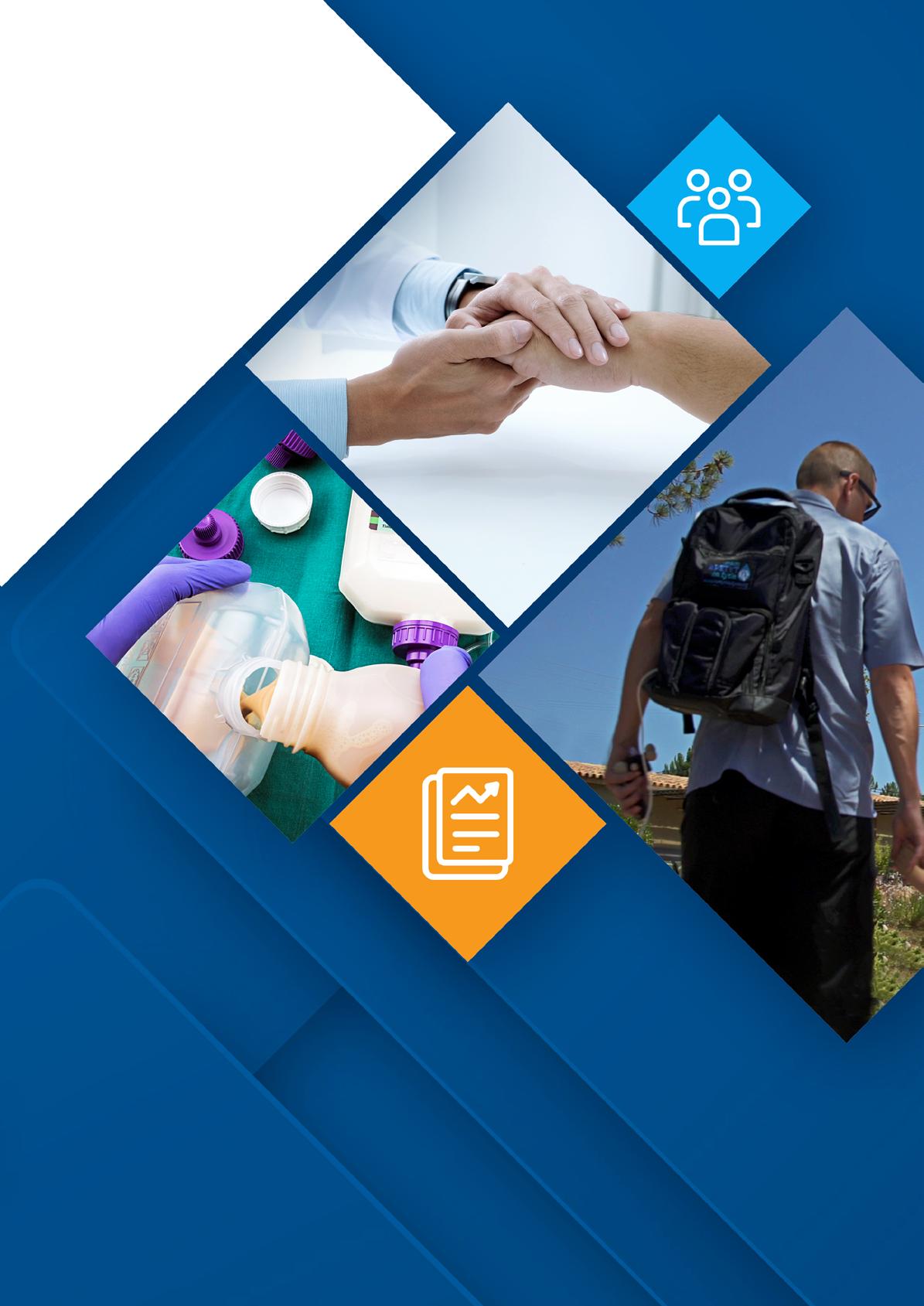




1 2 3
Advancing medical knowledge and expertise Facilitating access to medical nutrition EU Public Affairs: positioning Medical Nutrition on the EU health agenda MNI main priorities 4 7 9 10 7 9 10 7 7 9 8 6 MNI supporting ESPEN Guidelines HEOR oncology model MNI EU related activities EuGMS’ SPRIN G meeting MNI 2022 Grant Ensuring proper regulation for medical nutrition and nutrition interventions Home Parenteral Nutrition Table of Contents
Foreword by Manuela Schaflechner, President




4 5 6 Cooperations and partnerships Governance Financials 21 17 12 12 17 21 14 20 13 18 15 16 12 17 15 20 14 19 ENHA – European Nutrition for Health Alliance Code of Conduct Table Assets and Liabilities EuGMS – European Geriatric Medicine Society Executive Committee composition PCE - Pancreatic Cancer Europe MNI Working Groups and Workshops ISDI – the International Special Dietary Foods Industry Table of projects received financial contribution from MNI in 2022 ESPEN – the European Society for Clinical Nutrition and Metabolism 5-year strategy SNE – Specialist Nutrition Europe MNI Secretariat EPF – the European Patient Forum MNI Members (in alphabetical order)
Foreword by Manuela Schaflechner, President

A wise man once said, “You live life looking forward, you understand life looking backward” (Søren Kierkegaard). Another added, “Life is like riding a bicycle – to keep your balance you must keep moving” (Albert Einstein). It is my pleasure and honour to present you with the 2022 MNI Annual Report, a way for MNI to review the year and build on our learnings to take our organisation to the next stages of its development.
2022 was a year of substantial internal changes for MNI: we appointed a new Executive Director and a new professional Secretariat, initiated new projects, implemented new processes, and adopted a code of conduct and a five-year strategy – to name just a few examples. These great achievements would not have been possible without the impulse, support and energy of all our members’ representatives – experts in their field who contributed to the implementation and success of these changes. To you all, a warm thank you.
But you can either plan changes or have changes forced upon you, and in 2022 we experienced both. MNI’s bank decided to end our contract, provoking a review and adaptation of MNI’s articles of association. This process was ongoing at the beginning of 2023 as we had to follow the pace of the Belgian administration. The consultancy MCI also parted with MNI, giving us the opportunity to hire a new Secretariat: Dentons Global Advisors (DGA). This change allowed us to increase our staff and therefore the volume and quality of work. Hence from these unexpected events came positive adjustments.

“You can either plan changes or change can be forced upon you –in 2022, we experienced both”
After her predecessor, Léa Coulet, announced she was leaving MNI during the summer 2021, I was happy to welcome Catherine Hartmann as our new Executive Director at the end of February. Catherine comes with robust experience both in association management and in EU health affairs and policies, bringing a new impetus to the association. Under the Executive Committee leadership, she and the MNI Secretariat implemented our decision to support other stakeholders using project-based funding rather than operating grants, a challenging change that we successfully managed. With this came the reflection on MNI’s future: was the organisation we are committed to in-line with new developments in our field, and with our objectives and priorities? Accordingly, we worked together to draft a MNI Strategy that properly represents who we are as a group of specialists in medical nutrition, and which defines our strategic and operational objectives for the medium term.
We ran more than 20 projects in parallel and participated to others’ stakeholders’ initiatives to demonstrate the value and necessity of medical nutrition as a key component of the care pathway; we supported organisations sharing our objectives and values to better deliver, educate and inform on medical nutrition – all in a transparent and compliant manner.

As I conclude my mandate as MNI President in April this year, I am happy to present you with 2022’s achievements and to pass on the baton to our present Vice-President Angelika Müller who will no doubt pursue and innovate for the benefit of MNI, medical nutrition and more importantly, the patients.
Schaflechner, President of MNI
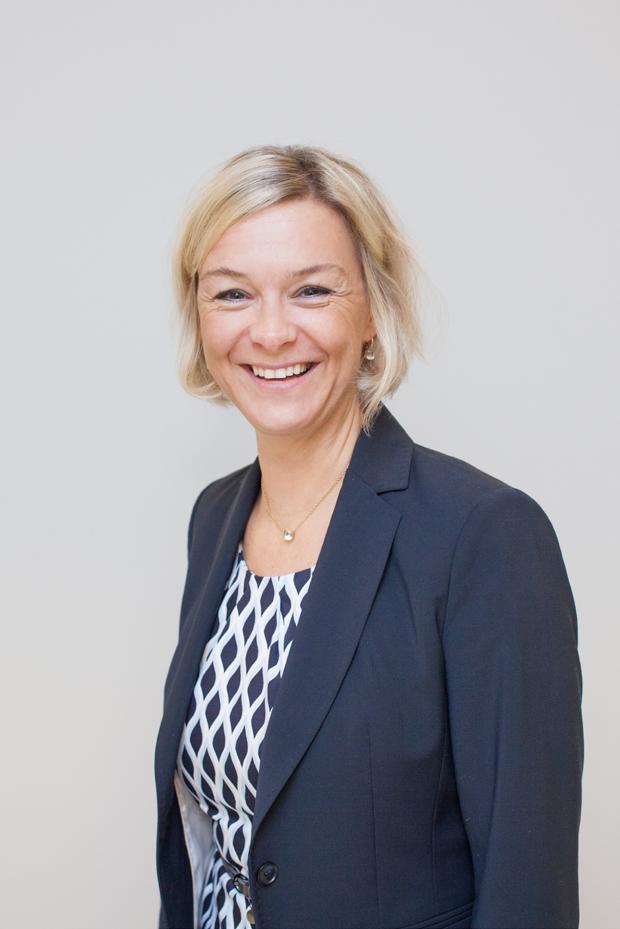 Manuela
Manuela
2022
MNI main priorities



Raising awareness in medical nutrition, via factsheets, infographics, meetings, statements, education and training to advance the quality of life of patients
Supporting and promoting the latest scientific findings via congresses, guidelines, applications, communication campaigns and grants to improve health outcomes for patients
Advocating for fit-for-purpose regulation to adequately inform patients and the public at large, to improve the accessibility and availability of medical nutrition via fair and equitable health systems

Promoting a continuum of care in all care settings, from hospital to home, and at all ages, from infancy to elderly
Supporting competence acquisition via life-long training of all healthcare professionals concerned with nutrition
Collection and co-creation of harmonized data to demonstrate the efficiency and value of nutritional interventions
MNI ANNUAL REPORT 2022 6
1. Advancing medical knowledge and expertise
MNI supporting ESPEN Guidelines
MNI financial contribution to the development of the ESPEN app on guidelines continues. The funds allow ESPEN to complement the app with additional guidelines. New features and activities to improve users’ experience and sharing opportunities are also envisaged soon.
MNI 2022 Grant
The €30,000 MNI Grant rewards national initiatives or research projects promoting optimal nutritional care. Since 2008, the MNI Grant has supported projects contributing to improving nutritional care policies at national level – all endorsed by (parenteral, enteral nutrition) PEN or our sister societies worldwide.

This year’s grant was awarded to the project “Empowering junior medical oncology clinicians on cancer-related malnutrition” submitted by SINPE (Italian Society of Clinical Nutrition and Metabolism). The project aims to evaluate junior medical oncologists’ awareness regarding the frequency of malnutrition, sarcopenia and cachexia in oncologic patients and their role in influencing both patient outcome and potential therapeutical approaches, using a multiple-choice questionnaire. The final objective is to sensitize oncologists toward early identification of patients at risk of malnutrition or malnourishment, and to educate them to provide appropriate nutritional care.
We look forward to celebrating the 15th year of the MNI grant in 2023!
EuGMS SPRIN-G meeting
SPRIN-G is an educational project and annual event of the European Geriatrics Medicine Society (EuGMS) Global Europe Initiative (GEI).
MNI financially supported the project, which explored through a two-day meeting the topic: “Ageing trajectories and healthy ageing as a life-long dynamic process: impact of diet patterns on the trajectory of neurocognitive decline”. SPRIN-G aims to go beyond the standard meetings of healthcare professionals and patients by inviting representatives from the political, social, and cultural sectors to take part in discussions on ageing.
MNI and EuGMS are assessing the best ways to collaborate in the future, as our organisations share mutual interests and plans – medical nutrition in elderly and frail people being a key focus of MNI.
MNI ANNUAL REPORT 2022 7
Home Parenteral Nutrition
Parenteral Nutrition is an integral part of the management of adults and children when food and fluids cannot be absorbed normally or if oral/enteral feeding is not possible or sufficient. Home parenteral nutrition (HPN) is defined as parenteral nutrition administered outside the hospital, either at home or at a nursing home. HPN is considered a valid option for improving quality of life in patients whose conditions require long-term parenteral nutrition.
MNI is developing communication materials to raise awareness on the feasibility, safety, clinical and economic value of HPN. It is also undertaking research to highlight the unequal access to HPN across Europe and promoting projects to overcome the lack of standardised discharge and homecare treatment protocols guiding smooth transfer of patients from hospital to home.
Following the launch of the MNI “Home nutritional care” website in 2019, several materials were posted and disseminated through the MNI communication channels and to relevant stakeholders:
• Video-animation “From hospital to home with parenteral nutrition”. This video was also translated into Polish to accommodate the request of the HAN patient organisation.
• Interviews of key opinion leaders on the importance and quality of nutritional care at home

• Promotion of the ESPEN Guidelines on HPN.
In 2022, we focussed on producing a HPN Access Mapping Report “Understanding access to HPN across Europe”. MNI commissioned a third-party to interview clinicians, payers, and policymakers across eight European countries to understand why these differences in access to HPN occur, with a view to improving equity of access across Europe. The results indicate that determinants for HPN access are multifactorial – depending on legislation, clinical pathways, enforcement of existing ESPEN clinical guidelines, and reimbursement.
A MNI White Paper on the factors contributing to unequal access to HPN in Europe is currently being finalized. This will be the basis for MNI’s work advocating for equal access of HPN across Europe through three main asks:
• To achieve equitable patient access to HPN across Europe, common frameworks for supportive legislation need to be established, HPN clinical guidelines need to be more consistently implemented, further reimbursement for HPN must be provided, and the management, organisation, and delivery of HPN all need to improve.
• Greater efforts are needed to better educate and inform decision-makers of current evidence and expert opinion in treatment guidelines. ESPEN guidelines provide evidence-based recommendations on the appropriate and safe use of HPN. Nonetheless, the degree to which these guidelines are used across Europe varies. Improving adherence with treatment guidelines will lead to improved access to HPN among those patients who need it.
• Action is needed by payers to address setting, indication, and regional reimbursement limitations to improve patient access to HPN.
Through the HPN stream of work, MNI also supported the Pancreatic Cancer Europe association – please see the ‘Partnership’ chapter of this report.
MNI ANNUAL REPORT 2022
2. Facilitating access to medical nutrition
Patients in need of medical nutrition must be offered the possibility to access it at the best financial condition, based on the health system regulating their health care provision. MNI member companies have a mission to make their products available to the benefit of patients, and this can only occur with fit-for-purpose legislation allowing access to care, appropriate reimbursement policies, and through demonstrating, not only the clinical efficacy and but also the value of their products and services to patients and health systems.
HEOR oncology model
To this end, the Market Access working group commissioned an agency to work together with MNI to demonstrate the economic value of medical nutrition in oncology. After a year of work, several meetings to define methodology, processes, and data generation, we developed a health economic and outcomes (HEOR) model that is being tested in the first weeks of January 2023, and will be followed by visuals, infographics and articles to disseminate findings widely, including at national level.
This is an important piece of work showing that medical nutrition interventions in cancer care are to be considered not only for optimum care but also as an affordable investment for better outcomes.
Ensuring proper regulation for medical nutrition and nutrition interventions
MNI released a statement on “Food for Special Medical Purposes (FSMPs) versus General Foods” to clarify in detail the differences between categories of foods, in particular between FSMPs and general/fortified foods, within the scope of the EU regulatory framework.
The Regulatory Affairs working group, in collaboration with Specialised Nutrition Europe (SNE) and International Special Dietary Foods Industries (ISDI) organisation, used extracts from this statement to publish a simple table to improve the understanding of the FSMP category among non-specialists in this sector.
The table was further duplicated in two other documents: one referring to EU FSMPs law1 and one to the global concept of FSMPs under Codex2. These documents were respectively branded together with SNE and ISDI.
MNI is also active on issues related to labelling of FSMPs, such as the information on the front of the product pack and content claims.
These FSMPs documents are part of a wider initiative to inform relevant stakeholders about FSMPs, as well as to be a reference for the industry at large. We trust that this will, in turn, allow easier access to medical nutrition for patients through better education and support from policymakers.
MNI has also worked with a consultancy firm on studying the feasibility to label FSMPs as organic, the objective being to offer patients the opportunity to access organic FSMPs and address questions that the European Commission (EC) raised in the past. The consultancy provided overall positive feedback on positioning FSMPs for organic labelling where appropriate. Currently it is not possible, under the EU law, to label FSMPs as organic. However, MNI – jointly with SNE – intends to follow-up with the EC on this topic.
MNI ANNUAL REPORT 2022 9
1 Commission Delegated Regulation (EU) 2016/128 2 CODEX STAN 180-1991
3. EU Public Affairs: positioning Medical Nutrition on the EU health agenda
MNI conducted a feasibility study on how to provide health indicators related to disease-related malnutrition (DRM) and assess the feasibility of collecting and sharing data on DRM in the bi-annual “Health at a Glance” report published by the EC and the Organisation for Economic Co-operation and Development (OECD) – where there is no mention of caring for malnourished patients in its various assessments and recommendations. The study concluded that there is no systematic nor consistent collection of data on DRM in the EU, contributing to inequality of nutritional care interventions. As a result, MNI will work with its members and communicate with the EC to share knowledge in the field.
MNI contributed to the EC consultation on non-communicable diseases, sharing its views on priorities for action in caring for patients with non-communicable diseases, examples of effective policies, best practices, promising approaches, and leads on how the medical nutrition sector can best collaborate with public health authorities and other parties3
MNI also answered the EU consultation on the revision of the Critical Raw Material (CRM) act, highlighting the need to include in the list essential ingredients that are necessary to care for people, in addition to the sustainable functioning of the European economy. We also underlined that, when defining priorities and objectives for EU actions and determining strategic CRMs based on pre-set criteria, EU legislators should consider the absolute need for these materials, and the absence of any replacements. For some components of medical treatment there are no alternatives, hence a lack of access to these CRMs (because of insufficient contingency planning) often results in a complete lack of any treatment options and therefore the deterioration of the patient’s health.
Jointly with ESPEN and the European Nutrition for Health Alliance (ENHA), two cancer-related online events were held during the ESPEN Congress in 2020 and 2021. As part of the nutritional care community efforts, MNI advocated for the inclusion of medical nutrition in the European Parliament’s Committee on Cancer (BECA) Report published in February 20224 and we were pleased to see that it:
• includes a paragraph on malnutrition
• refers to nutritional support
• requests the inclusion of nutritionist/dietitian in multidisciplinary teams
• promotes nutritional support as a human right (and ESPEN will include it in the review of the ESPEN Oncology guideline).
MNI ANNUAL REPORT 2022 10
4 European Parliament (BECA) Report on Europe’s Beating Cancer Plan addressing nutritional interventions 3 MNI contribution to NCD initiative
To build awareness on the importance of medical nutrition at EU level:
The final Europe’s Beating Cancer Plan published by the EC in 2021 acknowledged the importance of nutritional support, which is proven to help cancer patients cope better with illness and treatment, including the following measures:
• Building a qualified healthcare workforce, promoting the ‘Inter-specialty cancer training programme’
• Underlining the importance of a multidisciplinary workforce and calling for more dietitians/nutritionists in oncology wards
• Stressing the importance to provide supportive care to cancer patients.
This allowed for MNI to be acknowledged as an official stakeholder by the EC for consultation, including in the current implementation phase. Accordingly, MNI is contributing via webinars and open consultations.
Finally, MNI responded to the EC consultation on a future European Cancer Inequalities Registry5 , highlighting the absence of systematic and harmonised EU-wide collection of data on disease-related malnutrition and cancer, despite clear guidelines on the topic. This creates inequalities in malnutrition screening and access to nutritional interventions across the EU.

MNI ANNUAL REPORT 2022 11
5 MNI contribution to European Cancer Inequalities Registry
4. Cooperations and partnerships
ENHA – European Nutrition for Health Alliance
After the adoption in February of the MNI code of conduct, MNI moved to financing projects submitted by third parties, rather than providing operating grants. The focus of these projects should be pan-European and with a link to MNI’s priorities – hence financing local activities is no more part of MNI’s remit.
Despite the reduced support, MNI is proud to have helped ENHA develop and action the following:
1. A webinar and white paper, as part of the EU Thematic Network (hosted on the EU Health Policy Platform; HPP) on “Integrated Nutrition Cancer Care”. The aim of this initiative is three-fold, to:
• forge an alliance of more than 10 European-level stakeholder organisations in (clinical) nutrition and cancer care, including European patient organisations
• create the platforms (workshops, seminars, social) and utilise the HPP environment (Thematic Network) to discuss the topic and set the framework
• present a joint statement to representatives from DG Health of the EC and the Europe-wide HPP audience.
2. An EU Expert Session at the yearly Optimal Nutritional Care for All (ONCA) conference (May 2002, Copenhagen)
3. An EU Presidency Policy Seminar titled “Integrating Nutrition in Care: Imperative to European Citizens’ Health”, held in the Czech Republic as part of ENHA’s EU4Nutrition campaign.
ESPEN – the European Society for Clinical Nutrition and Metabolism
In addition to supporting the ESPEN Guidelines’ app (see Chapter 1), MNI was also happy to present its Grant award at the ESPEN congress (September 2022, Vienna), as a mutual demonstration of shared interest and enthusiasm for supporting research and advancement in the field.
MNI ANNUAL REPORT 2022 12
PCE - Pancreatic Cancer Europe
MNI co-funded an awareness campaign run by PCE to support improving the nutritional status of pancreatic cancer patients. This information campaign – underway via social media – includes:
• Seven infographics addressed to various target groups:
1. “What is nutrition” for the general public
2. “Importance of nutrition within the treatment process” (reference to cachexia, sarcopenia and malnutrition) for the general public
3. “How to detect malnutrition in pancreatic cancer patients” for the general public

4. “Support of carers” for the general public and carers
5. “Support of practitioners in nutrition (about malnutrition) for practitioners
6. “Nutrition and microbiota in pancreatic cancer” for the general public
7. “Home parenteral nutrition – HPN” (why, benefits, actors involved …) for the general public.
• A booklet with more detailed information, beyond that in the infographics.
MNI also supported PCE with the dissemination of its findings, graphics, and texts though its social media accounts. MNI was happy to demonstrate its continued commitment to cancer patient with this excellent initiative.
MNI ANNUAL REPORT 2022 13
EPF – the European Patient Forum
As part of MNI cofounding, the EPF and ESPEN are cooperating in producing lay versions of ESPEN guidelines for patients. MNI is co-funding the publication of lay summaries of ESPEN clinical guidelines for patients. EPF identified the ESPEN Guideline on inflammatory bowel disease (IBD) and the one on liver disease as the target documents to produce lay versions. These documents are planned to consist of (maximum two pages) aim to help patients better understand nutritional care and to support the dissemination of latest scientific developments by aiding patients’ understanding and uptake.
Further information materials and tools for patients will follow, e.g. on the role of nutrition in managing long-term conditions, information to patients on nutrition and health literacy, and informed shared decisionmaking and patient empowerment.
EuGMS – European Geriatrics Medicine Society
After a first successful cooperation with the SRIN-G event (see above), MNI and EuGMS are exploring additional potential joint projects, with a focus on public health and advocacy for the elderly in order to advance geriatric medicine across Europe and the development of the profession in countries where it is absent.

MNI ANNUAL REPORT 2022 14
SNE – Specialist Nutrition Europe
SNE is the association representing the specialised nutrition industry in Europe. SNE is composed of National Associations from 19 European countries. Its members represent companies producing tailor-made food products for populations with very specific nutritional needs, including infants and young children, patients under medical supervision, sportspeople, overweight and obese consumers, and people suffering from coeliac disease.
The MNI and SNE Secretariats held regular meetings and catch-up calls to keep each other updated and to follow-up on projects related to FSMPs, namely:
• a factsheet listing six ways to recognise an FSMP (based on EU law)6
• work on information on the front of pack label
• organic labelling for FSMPs (see section above on “Ensuring proper legislation).
ISDI – the International Special Dietary Foods Industry
ISDI is an industry platform for debate on regulatory, technical, and scientific issues regarding special dietary foods. It brings together national and international associations active in this food sector from more than 20 countries worldwide. MNI is a member of ISDI.
MNI and ISDI finalised their joint factsheet on “6 easy ways to recognise an FSMP” (based on Codex) which is published on both associations’ website and social media channels.
6 https://www.medicalnutritionindustry.com/fsmps

MNI ANNUAL REPORT 2022 15
Table of external projects that received financial contribution from MNI in 2022
Project title
Amount
PCE –Pancreatic Cancer Europe
Nutrition and Pancreatic Cancer
Aims to give to nutrition a more central importance in the care of pancreatic cancer patients . Specific objectives:
- Raise awareness on appropriate nutrition for pancreatic cancer patients, also at home
- Communicate the importance of early identification of nutrition needs in pancreatic cancer patients
- Support the early malnutrition detection in pancreatic cancer patients
- Foster knowledge on nutrition for supporting pancreatic cancer treatment.
SPRIN-G Ageing Trajectories
An educational project and annual event exploring ageing trajectories and healthy ageing as a life-long dynamic process
ESPEN Guideline app
Add further ESPEN guidelines in the ESPEN guidelines App and improve the users’ experience with additional features
EU Thematic Network on Integrated Nutrition Cancer Care
Key objectives of the 2022 execution phase of the Thematic Network were:
1. Forge an alliance of >10 European-level stakeholder organisations in (clinical) nutrition and cancer care, including European patient organisations
2. Create the platforms (workshops, seminars, social) and utilise the provided HPP) to discuss the topic and set the framework
3. Present the joint statement to EC DG SANTE and the HPP Europe-wide stakeholders audience.
EuGMS –European Geriatric Medicine Society ENHAEuropean Nutrition for Health Alliance €29,000.00 €13,950.00
EU Expert Session (Copenhagen)
EU Presidency Policy Seminar
As a key part of the annual conference in Copenhagen, ENHA organised a session on EU policies and collaboration of European stakeholders in health programmes and (clinical) nutritional care.
Key objectives:
ENHAEuropean Nutrition for Health Alliance €20,000.00 €26,100.00 €19,770.00
1. Present state-of-the-art scientific evidence to support the need for clinical nutrition and nutritional care
2. Provoke discussion on clinical nutrition and nutritional care among patients, experts, members of the Council of the EU
3. Attract a European wide (online) stakeholder
4. Present a declaration with key recommendations to the Swedish Presidency of the Council of the EU
ESPEN –European Society for Clinical Nutrition and Metabolism ENHAEuropean Nutrition for Health Alliance €10,000.00 €12,156.00
EU4Nutrition Strategy Workshop
ENHA designed, organised and hosted a high-level strategic workshop with relevant EU-level NGOs and institutions concerned with (clinical) nutritional care. EU-level decision-makers were invited to share their views. The workshop united all stakeholders to enhance the pressure to involve and engage key decision-makers at the EU level and have them take part in achieving the overall objectives of EU4Nutrition.
MNI ANNUAL REPORT 2022 16
ENHAEuropean Nutrition for Health Alliance
Organisation
Description
5. Governance
Code of Conduct
During the past 3 years MNI has re-assessed its functioning and operations to reinforce ethical and compliant rules governing its engagement with other stakeholders, including medical nutrition practitioners, patient groups and political representatives. This concluded with a robust Code of Conduct formally adopted in February 2022 – a key instrument to enhance MNI’s transparency and commitment to ethical behaviours.
The Code reflects existing good practice in the food, nutrition, pharmaceutical and general care, and will be reviewed every year to assess its validity and adequacy in relation to current practice. The Code sets minimum standards for MNI and its members to help avoid potential conflicts of interest, healthcare fraud, abuse, and any other corrupt or illegal activities, and to and support ethical and transparent interactions with the healthcare community. It covers, inter alia the following topics:
• applicable laws, codes and principles of healthcare compliance
• MNI relations with patients, patient organisations and multistakeholder organisations

• MNI interactions with healthcare professionals and healthcare organisations.
In addition, any potential topics such as those related to pricing, market development or competition are thoroughly and carefully reviewed and assessed by MNI members before a decision is taken to adopt an MNI position on these topics.
5-year strategy
To ensure that all members are aligned on the organisation’s vision, mission, and priorities, MNI conducted an internal consultation to canvas members’ views about MNI, its future activities and aims. This led to the creation of MNI Strategy 2023–2027, which will contribute to enhancing MNI’s transparency whilst externally sharing its plans and key objectives – ensuring all audiences and partners understand what MNI is striving to achieve.
MNI ANNUAL REPORT 2022 17
MNI Working Groups and Workshops
MNI member companies’ experts (still organised into Working Groups in 2022 and coordinated by the MNI Secretariat), met regularly online to discuss and progress the various subjects and projects of the organisation. These groups are the engine of the association: within them lies MNI knowledge, initiatives, experience, and leadership.
Twice a year, the MNI experts held online or physical workshops to:

• identify synergies between the groups and brainstorm on ways forward on topics of common interest
• work together, rather than in silos, and exchange information, views, and suggestions
• collaborate to help build an “MNI 2.0” and to move the association forward.
These appointments were key to MNI strategy and planning, as members worked to determine a real impact of nutritional interventions in patient care and shaping de facto MNI action.
This is a great opportunity to cheer and thank MNI experts for their valuable contribution to advance better patient care through better nutrition.
As from 2023, MNI members’ collective expertise will be organised around projects, instead of working groups with fixed schemes and budgets. The intention is to create a more agile and performanceorientated association and to integrate advocacy and communication across the board. Company members’ work will revolve around the different steps of agreed projects to provide support and to contribute on their best field of expertise.
MNI ANNUAL REPORT 2022 18
MNI Members
There are two types of members in MNI: Full members (medical nutrition manufacturers), and Associate members (companies or collective organisations operating in the field of medical nutrition products and services). In 2022, MNI had eight members in total:
• Full: Abbott, Baxter, BBraun, Fresenius Kabi, Nutricia/Danone, Nestlé Health Science

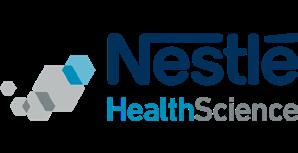
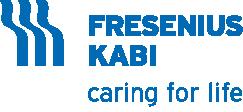
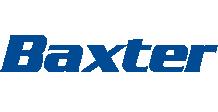


• Associate: Fonterra and Micrel


MNI ANNUAL REPORT 2022 19
Executive Committee composition
All Full members have a representative in the Executive Committee. The Presidency rotates every 2 years among the companies.
Members of the Executive Committee in 2022:

• Abbott: Rodrigo Ferreira
• Baxter: Manuela Schaflechner (President)
• BBraun: Angelika Müller (Vice-President)
MNI Secretariat
• Fresenius Kabi: Jos Simons
• Nutricia/Danone: Patrick Kamphuis
• Nestlé Health Science: Anna Mohl
The team supporting MNI’s members and work, as well as coordinating and managing all operations, projects and back-office is composed of:
• Catherine Hartmann, Executive Director
• Elena Miceli, Project Manager
• Genco Turkmen (MCI – until September)
• Angela Meurer, association management (DGA – since September)
• Yves Brand, public affairs (DGA – since September)
• Louise Pilot, public affairs (DGA – since September)
• Gloria Botton, general support (DGA – since December)
All team members work part-time for MNI.
The MNI statutes are published on MNI website, together with financial reports and the code of conduct.
MNI ANNUAL REPORT 2022 20
IX.
MNI ANNUAL REPORT 2022 21
YEAR
NET EQUITY OF THE ASSOCIATION
VII. AMOUNTS RECEIVABLE WITHIN ONE
I.
AMOUNTS PAYABLE
YEAR
WITHIN ONE
CHARGES AND DEFERRED INCOME
CASH AT BANK AND IN HAND
TRADE DEBTORS
NET EQUITY OF THE ASSOCIATION
TRADE DEBTS
OTHER AMOUNTS RECEIVABLE Customers Net equity association
SUPPLIERS Suppliers Accrued charges (P) Invoices to be received Credit notes to be issued VAT to be recovered ING : BE65 6305 4079 8196 Credit notes to be received 31/12/2022 31/12/2022 115.826,58 329.623,25 69.884,88 1.000,00 284.681,55 60.465,00 329.623,25 69.884,88 55.361,58 60.000,00 329.623,25 69.884,88 1.014,40 1.000,00 28.870,48 40.000,00 55.361,58 284.681,55 465,00 CURRENT ASSETS CAPITAL AND RESERVES CREDITORS TOTAL LIABILITIES TOTAL ASSETS 400.508,13 329.623,25 69.884,88 400.508,13 400.508,13 Assets LIABILITIES
X. ACCRUED
IX.
A.
A.
C.
B.
1.
6. Financials

Editor Catherine Hartmann
Miceli Lee Baker Design & layout Lazarus Kreativ www.lazaruskreativ.com Copyright information MNI tried to find all copyright holders of illustration material. Those who believe they have rights to materials are requested to contact the MNI Office. Address Boulevard du Souverain 280 1160 Bruxelles Belgium www.medicalnutritionindustry.com secretariat@medicalnutritionindustry.org @MNInutrition MNI Medical Nutrition International Industry
Elena






 Manuela
Manuela





















